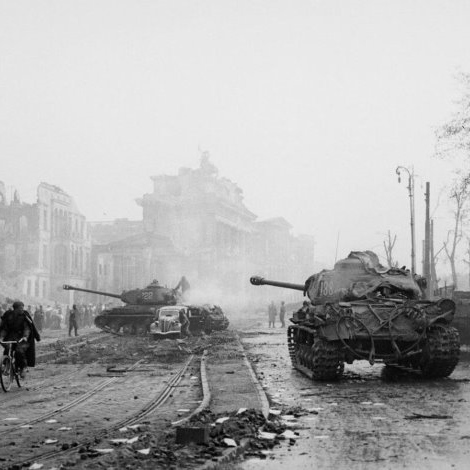click to dowload our latest edition
CLICK HERE TO SUBSCRIBE TO OUR NEWSLETTER


Published
5 years agoon
By
adminSTEVEN GRUZD
For Jews, 1939 ushered in the horrors of the Holocaust, in which six million men, women, and children would be deliberately slaughtered by the Nazis and their willing collaborators across Europe.
How has the passage of time affected the world, the Jewish people, and the way we look back on 1939?
Mary Kluk, the director of the Durban Holocaust and Genocide Centre, said, “Eighty years ago, no one could have imagined what would have happened during that war. It was unthinkable. It’s still hard to grasp what transpired. The start of the war created the environment for the most insane and unprecedented human behaviour.”
Today, the global Jewish population is about 14.5 million people, equivalent to what is was in 1939.
“Our numbers have barely reached pre-war levels,” says Grant Gochin, a South African-born lawyer fighting the Lithuanian government to confront its role in the Shoah. “We lost many of our best, brightest, and strongest, and we are a remnant that still has to rebuild. Where could the world have been today if all those scientists hadn’t been murdered? What art wasn’t created? What music hasn’t been written?”
The shadow of the Holocaust reaches deeply into contemporary Jewish life. Tali Nates, the director of the Johannesburg Holocaust & Genocide Centre, said, “I believe the Holocaust became part of Jewish identity alongside the Jewish religion and state of Israel. The Holocaust plays a significant role in most of the thinking among Jews including their fears, aspirations, philosophy, and way of life.”
Said Kluk, “The Shoah influences who we are and how we respond. Even 80 years later, it remains deeply hurtful and traumatic.”
Tracey Farber, a clinical psychologist who studied Holocaust survivors for her PhD agrees. “The survivors and certainly the second and third generation have been affected by being witness to their parents’ pain and everything that brings with it,” she said. “We can’t look at their trauma without looking at the amazing resilience of these people who went through such terrible loss and horror, and were able to renew their capacity to build their lives and invest love in their children and grandchildren.”
What did the war teach people? According to Nates, “The world has learned many lessons in the past 80 years, establishing international bodies and protective laws such as the Convention on the Prevention and Punishment for the Crime of Genocide, and the Universal Declaration of Human Rights. However, despite the commitment of the world to the notion of ‘never again’, genocide and other atrocities happen again and again.”
Nates points out that the language of human rights barely existed before 1939, “yet we cannot think about our world without referring to fundamental rights”.
“We also learned that people and governments have choices, and can remain bystanders or take action and become upstanders. The diplomats who saved Jews during the Holocaust – people like the Japanese Sugihara, Swedish Wallenberg, Swiss Lutz, or Portuguese de Sousa Mendes – show us that morality and ethics can stand above the law of the country.”
Nations continue to grapple with the legacy of World War II today. “Germany can teach lessons on confronting a difficult past,” Nates said. “It took it many years to get to this point, but 80 years later, the country certainly acknowledges its dark past politically, educationally, and in terms of memorials and reparations. For other countries, the road is harder and longer. As we know ourselves through our own difficult past, the road is not an easy one, and many times governments take some steps forward but then backwards in a difficult process of acknowledging their own complex role during that time.”
Said Gochin, “Lithuania is still in a state of denial and deception. There can be no progress when a whole nation’s official and legal narrative is a distortion. [Then], lessons can’t be learned. It’s an inversion of justice.”
Will memories of the Holocaust survive the loss of the survivors? Said Nates, “Our oldest survivor in South Africa is 101 years old, and the youngest is in their early 80s. Sadly, it’s inevitable that in some years, we educators, descendants, and activists will have to continue to share the survivors’ stories for generations to come. I’m confident that the Shoah Foundation’s 52 000 testimonies, many other films, books, lesson plans, and other new technologies will keep the memory and lessons alive. I believe that the Holocaust, like other major chapters in world history, is here to stay in order to teach us all ethical lessons about humanity.”
